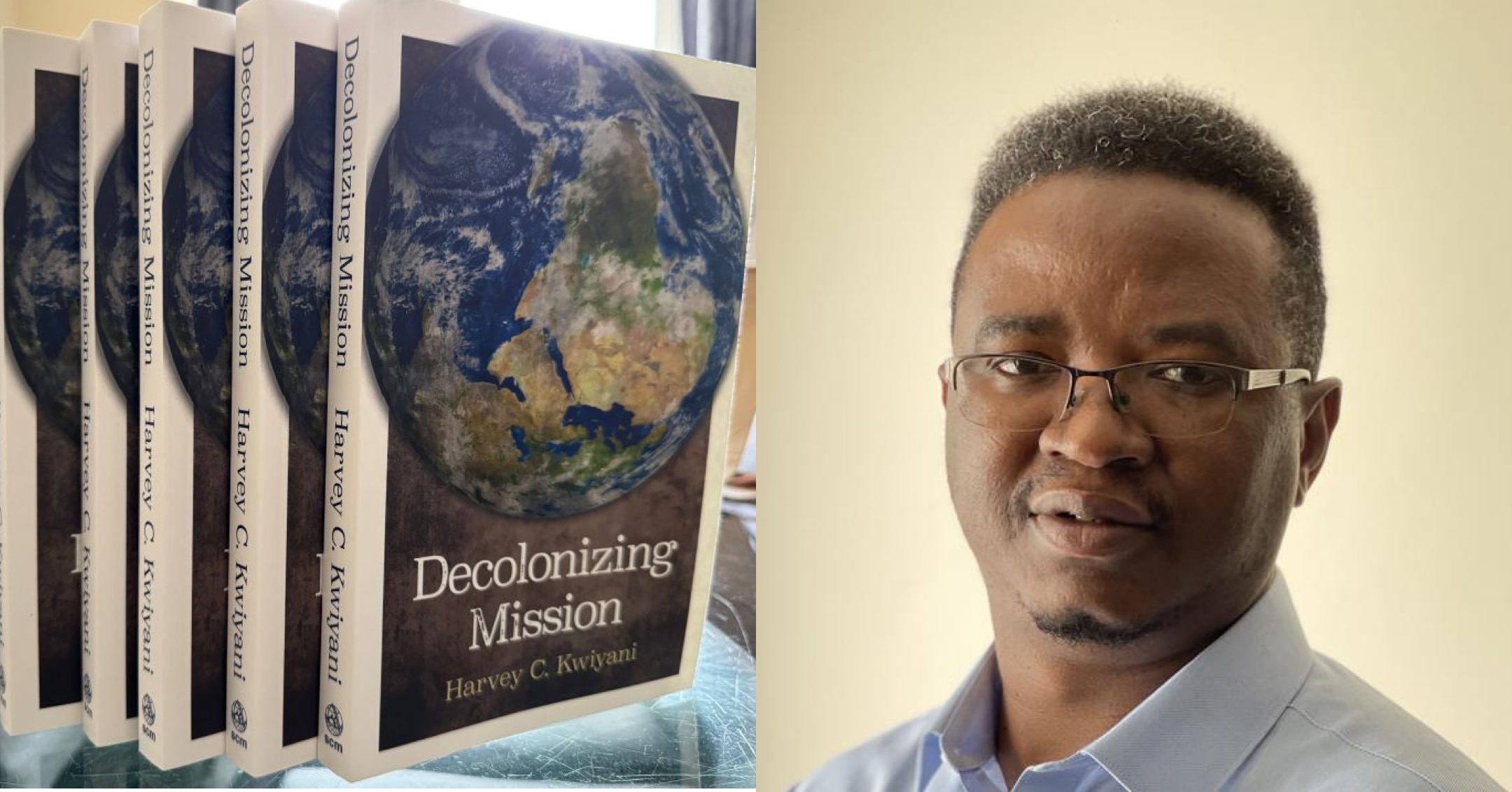Harvey C. Kwiyani’s Decolonizing Mission (SCM Press, 2025) is one of those rare books that both discomforts and enlightens its reader. It asks Western Christians to confront the darker legacies of mission history and imagine what Christian witness might look like when it is truly freed from the shadow of empire. The book is part theology, part history, and part manifesto and it has provoked much-needed conversation about the future of global Christianity.
Who is Harvey Kwiyani?
Harvey Kwiyani is a Malawian theologian and missiologist who has lived and taught in both Africa and the United Kingdom. His own experience, moving between African and Western church contexts, gives him a unique vantage point. He has taught intercultural theology and missiology, leads research on African diaspora churches in Europe, and writes frequently about the global shift of Christianity toward the Global South. In short, he embodies the world he describes: a Christianity that is global, polycentric, and no longer controlled by Western institutions.
Overview of the Book
Kwiyani begins by naming the obvious that for centuries, the Western missionary movement grew hand-in-hand with empire. Christianity and colonialism sailed on the same ships, built on the same assumptions of cultural superiority. He is careful not to dismiss every missionary as a villain, many, he notes, were sincere and self-sacrificing, but the structures that sent them were often complicit in systems of domination and exploitation. The gospel was carried by men and women who genuinely loved God, but they often arrived holding both the Bible and the flag.
Decolonizing Mission explores the long shadow of this legacy, the enduring effects of slavery, colonisation, and what Kwiyani calls “the colonised mindset.” He argues that colonialism has not only impoverished nations but shaped the way Christians think about themselves and others. Western Christians, he says, still imagine themselves as senders, teachers, and funders; believers in the Global South are cast as receivers, learners, and dependents.
This imbalance is not only cultural but theological. Many in the West still think of mission as something they do to others. But as Kwiyani shows, the centre of gravity in world Christianity has already moved. The majority of believers now live in Africa, Asia, and Latin America. The old paradigm of “the West to the rest” has collapsed.
A New Missiology: Mission Without Empire
The heart of Kwiyani’s argument is his call for a “new missiology”, a model of Christian mission that is decolonized, non-imperial, and mutual rather than hierarchical. The final chapter, perhaps the most compelling part of the book, lays out this new vision.
For Kwiyani, the gospel must be shared “without empire.” Mission cannot depend on political, military, or economic power. He writes that God does not need empires to push the mission forward. The church must rediscover how to witness to Christ from a position of humility, not dominance.
This means several practical shifts. First, mission must become reciprocal, a two-way exchange of gifts, insights, and leadership. Western Christians must learn to receive mission from African, Asian, and Latin American believers. Second, cultural humility is essential. Every people must discern what it means to follow Jesus in their own language, customs, and rhythms of life. Western Christianity must stop exporting its culture as though it were the gospel itself. Third, intercultural theology must replace one-way teaching. Theology, Kwiyani argues, grows richest when it is shaped through “cross-pollination” between cultures.
Above all, Kwiyani wants to recover the pattern of Christ himself: the refugee, the servant, the teacher who chose the margins rather than the palace. The gospel of peace cannot be carried by the instruments of power. It flourishes in weakness, compassion, and community.
Strengths of the Book
There is much to admire here. Kwiyani writes with conviction and clarity. He does not hide behind academic distance but speaks as someone who has lived the realities he describes. His analysis of mission’s colonial entanglement is historically sound and theologically challenging. His storytelling, from Africa to Europe to North America, makes the theory tangible.
Most importantly, Kwiyani’s vision is hopeful. He does not want to destroy the idea of mission but to redeem it. “Decolonizing” for him is not about guilt or self-flagellation but about liberation, freeing both Western and non-Western Christians to participate in God’s mission as equals.
Weaknesses and Challenges
That said, the book is not easy reading. At times it feels angry, and understandably so. Centuries of injustice cannot be discussed politely. However for some readers, myself included, that anger risks dulling empathy. I wanted him to keep inviting rather than indicting.
Another limitation is that his proposals, while inspiring, are sometimes idealistic. It is easier to call for mutuality than to achieve it. Deep structural inequalities, financial, institutional, and educational, still shape the church. Without concrete pathways for partnership, “mission without empire” can sound more like a slogan than a strategy.
Still, these are quibbles in what is otherwise a courageous and necessary work. Kwiyani’s critique cuts deep precisely because it is rooted in love for the Church and faith in the gospel’s power to renew itself.
Personal Reflection
I found Decolonizing Mission deeply thought-provoking. It forced me to re-examine what we mean by mission and whether our current models genuinely reflect Christ. It is clear that discipleship must be local, communal, and lifelong resonates strongly. A healthy church, as I see it, is not defined by numbers or programmes but by Christ-shaped character, a Spirit-filled community where discipleship, evangelism, and justice flow together.
Kwiyani’s challenge to “share the gospel without empire” reminds me that true mission is not conquest but companionship. It is the work of walking with others toward Christ, not dragging them into our image of Him.
Conclusion
Decolonizing Mission is not a comfortable book, but it is an essential one. It asks hard questions about power, culture, and faith, and does so from within the family of global Christianity. For Western readers, it is a call to humility; for African and Asian readers, it is a call to confidence. For all of us, it is an invitation to imagine a new future where mission is truly the work of the whole Body of Christ.
In that sense, Kwiyani stands in the prophetic tradition of being unsettling, uncompromising, and hopeful. The world has changed. The Church must change with it, not by abandoning mission, but by rediscovering it as Jesus lived it. unarmed, unafraid, and unaligned with empire.


Leave a Reply